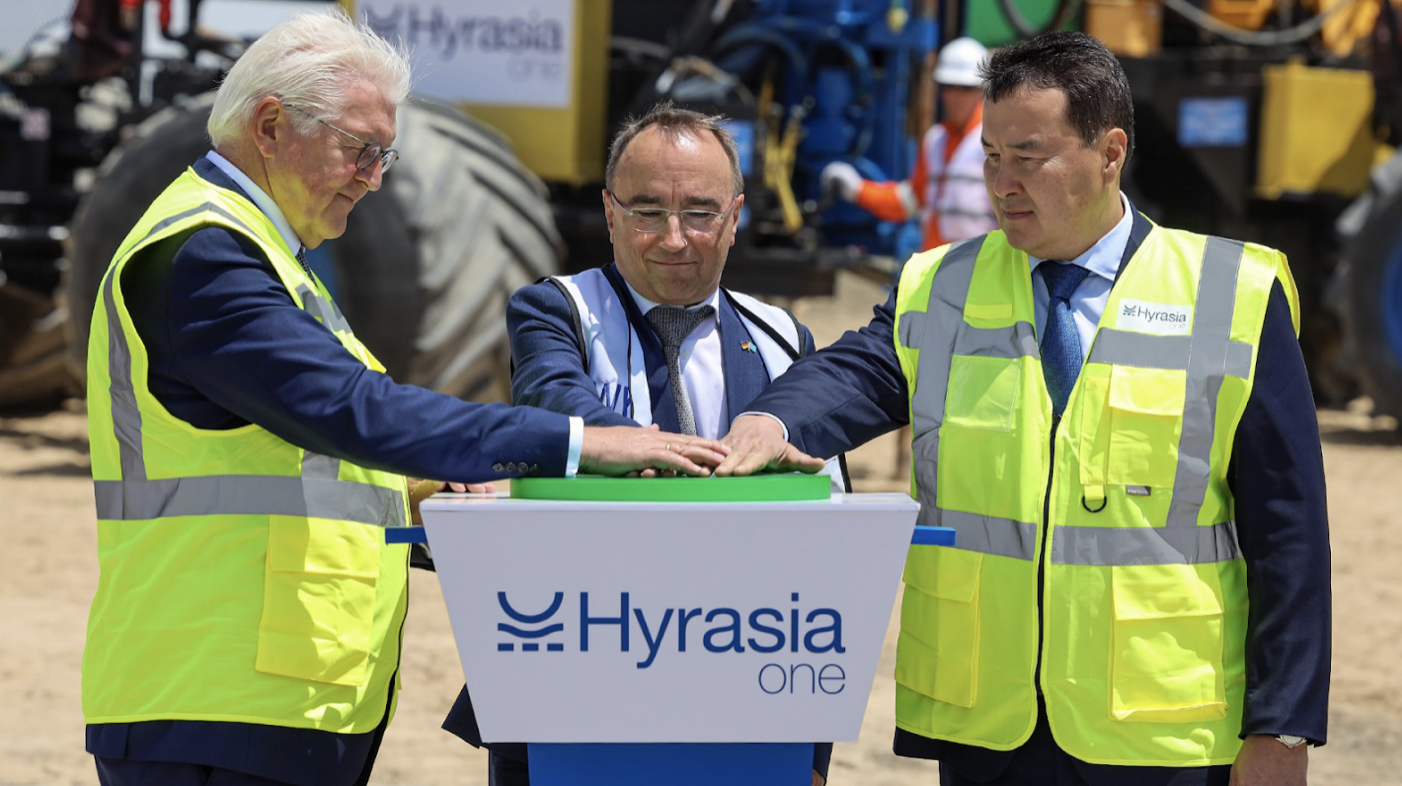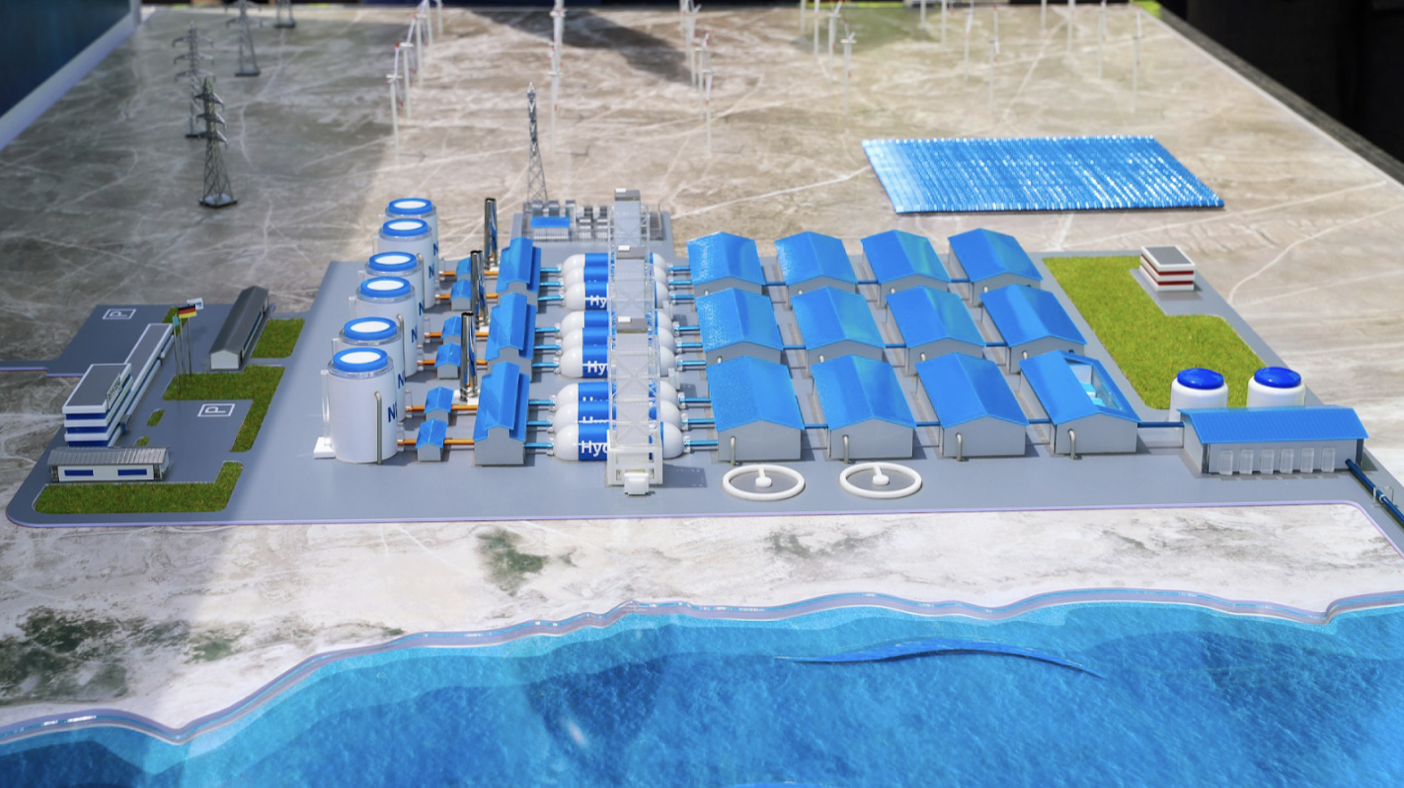Kazakh-German Relations: A Strategic Partnership Driving Investments
Recent Articles
Author: Meray Ozat
07/18/2023
During his official visit to Kazakhstan from June 19 to June 21, German President Steinmeier further solidified the bilateral relations between Kazakhstan and Germany. Central Asian countries are progressively demonstrating their multi-vector policies by fostering stronger relationships with Western nations. And, notably, Kazakhstan has been at the forefront of this drive, witnessing a series of high-profile visits from European countries, underscoring growing global attention in the region.
The German-Kazakh Business Forum held in Astana on June 20 resulted in the signing of 23 bilateral agreements worth US $1.7 billion. In contrast to past collaborations that primarily concentrated on non-resource sectors, this visit emphasized a profound partnership in the natural resources and energy sectors.
In 2022, Central Asia’s foreign trade turnover surged to US $190 billion, a clear indicator of the region's economic vitality. With this economic momentum, Kazakhstan is projected to see 4.5%-5% GDP growth in 2023. This economic growth can be attributed to an influx of foreign investments, evidenced by a 17.2% increase in investments in fixed assets within the first five months of 2023. A recent visit by the German President, Frank-Walter Steinmeier, resulted in a substantial investment, underscoring unprecedented European attention to Kazakhstan and expected to further enhance the country's economic performance.
As a primary trading partner in Central Asia, Kazakhstan constitutes 80% of trade between Germany and Central Asia. Thus, Kazakhstan is considered one of Germany's top 50 economic partners and one of the four primary oil supply countries. Germany has invested a total of US $6 billion in Kazakhstan, with 90% of the investments directed toward the non-resource sector. Currently, there are approximately 1000 companies in Kazakhstan that have German capital.
With Germany's renowned expertise in technology and high-quality education, the focus of the bilateral cooperation mainly lies in the education and science sectors with a focus on technical developments in energy, mining, and agriculture sectors, as well as developments in research and education. The close bilateral relationship might also be attributed to demographic factors, as both countries host sizable diaspora communities from each other. There are approximately 226,000 ethnic Germans residing in Kazakhstan, while Germany is home to over one million Kazakhs.
Notable agreements in the realm of natural resources include a US $22 million project between Kazakhstan’s Kazenergepower and Germany’s Siemens on the production of medium-voltage distribution devices utilizing Siemens technology and a US $200 million project on the exploration, extraction, and processing of rare metal ores in Eastern Kazakhstan. As an oil-abundant country, an agreement was also signed between the national oil and gas company of Kazakhstan, KazMunayGas (KMG), and Rosneft Deutschland on increasing the supply of crude oil from Kazakhstan to the German oil refinery in Schwedt. As part of the arrangement, the Karachaganak oil field will augment the monthly oil supply by 100,000 tons until the end of 2023, expanding the total supply of 890,000 tons of oil to Germany.
 Source: Kazakh Prime Minister Press
Source: Kazakh Prime Minister Press
President Steinmeier's visit extended to Kazakhstan’s Mangystau region, becoming the first European leader to visit this region. Steinmeier visited the Karakiya district of Mangystau with Prime Minister Smailov, where they launched a test drilling on the large-scale green hydrogen project. The ambitious project, carried out by the leading German-Swedish company Svevind, aims to construct solar and wind power plants with a total capacity of 40 gigawatts. This capacity will enable the production of two million tons of green hydrogen, or 11 million tons of green ammonia annually starting from 2023. This project will not only raise the hydrogen and ammonia supply in Kazakhstan, thereby diversifying Kazakhstan’s energy mix, but it will also accelerate the transition to green energy.
To date, Germany and Kazakhstan have signed a US $50 billion deal on the green hydrogen project. According to the head of the Svevind, Wolfgang Kropp, this project will be the first green hydrogen plant launched at this scale in the world. The construction is expected to start in 2027 and official operation is expected to commence in 2030. With Germany's assistance, Kazakhstan has a huge potential to become a leading producer of green hydrogen and supplier of green energy to Asian and European markets.
 Source: Kazakh Prime Minister Press
Source: Kazakh Prime Minister Press
In addition to the cooperation in the technical sector, Germany and Kazakhstan crafted multiple agreements in the education sector supplementing pre-existing 178 active education deals. The German-Kazakh business forum held in Astana provided an additional communication platform for the education sector with the participation of 11 German and 25 Kazakh technical universities. This forum helped establish two institutes, the Kazakh-German University of Sustainable Engineering at the Caspian State University in Aktau and the Kazakh German Institute of Science and Technology at the East Kazakhstan Technical University in Oskemen.
These universities will have high-quality science programs and curricula aligned with German standards, including opportunities for Kazakh students to study at partnered German universities. According to Prime Minister Smailov, the university will train professional personnel needed for the newly launched energy projects, such as green hydrogen, and foster scientific research on innovative technologies.
German President Steinmeier also visited Kazakhstan’s Caspian Kuryk port, where he evaluated the ongoing transport and logistics projects of the Trans-Caspian International Transport Route (TITR), otherwise known as the “Middle Corridor.” The potential and strategic importance of this emerging route is continuing to rise as a possible alternative to the Northern Corridor. The total capacity of the two large ports, Kuryk Port and Aktau Port, reaches more than 20 million tons, with further planned expansion to 30 million tons. Kazakhstan plays a crucial role in this route, with 80% of the goods transported between China and Europe passing through the country. Witnessing the promising trends of the TITR, the German delegates expressed their willingness to help Kuryk Port to reach its full potential by launching projects in transport and logistics.
This visit by President Steinmeier demonstrated Germany's ambitions and strong strategic objectives in Kazakhstan. A leaked document from the German Foreign Ministry, obtained by the German news magazine Der Spiegel, revealed Germany's current national security strategy, identifying Central Asian countries as key interests and aiming to counterbalance the dominating Russian and Chinese influences in the region. As President Steinmeir stated: “We need to promote projects that are interesting from the political point of view”.
While the trade volume between Central Asia and the West has increased rapidly, trade volume with Central Asia’s long-standing partner, Russia, shows no signs of slowing down. According to Kazakh political scientist Dimash Alzhanov, while Western exports to Kazakhstan increased by 80% in 2022, trade turnover between Kazakhstan and Russia grew by 60%. In addition, flights between Kazakhstan and Russia are planned to resume starting from July 25 with flights twice a week connecting between Ufa and Kazakhstan twice a week.
With Russia’s economic influence in Central Asia failing to wane, investigations have revealed that Kazakhstan and other Central Asian countries have been exporting sanctioned items such as electronic components and dual-use goods to Russia. Due to their ambiguous relations with Russia, Central Asian states are listed as possible targets of the European Union in the recent 11th package of sanctions against Russia. In response to the concerns of the European Union, President Tokayev refuted the statement accusing Kazakhstan for providing sanctioned goods to Russia and stressed Kazakhstan’s commitment to follow the guidelines and standards of the World Trade Organization and the international market.
Kazakhstan’s ambitions to distance itself from Russia and emerge as a regional leader is becoming obvious. The high-profile visit of Germany with a significant amount of investment not only opened new economic opportunities for Kazakhstan and the region but also shifted the geopolitics of the region in a new direction. The growing German ambitions in the region show Germany’s commitment to become a reliable and long-lasting partner in Central Asia. The growing Western involvement can largely help Central Asian countries to realize the pursuit of multi-vector foreign policy and contribute to resolving geopolitical concerns. However, this ambiguous posture can create obstacles in their relations with both Western countries and Russia. Therefore, the Central Asian countries should rethink their strategy in balancing relationships between the West and Russia.
